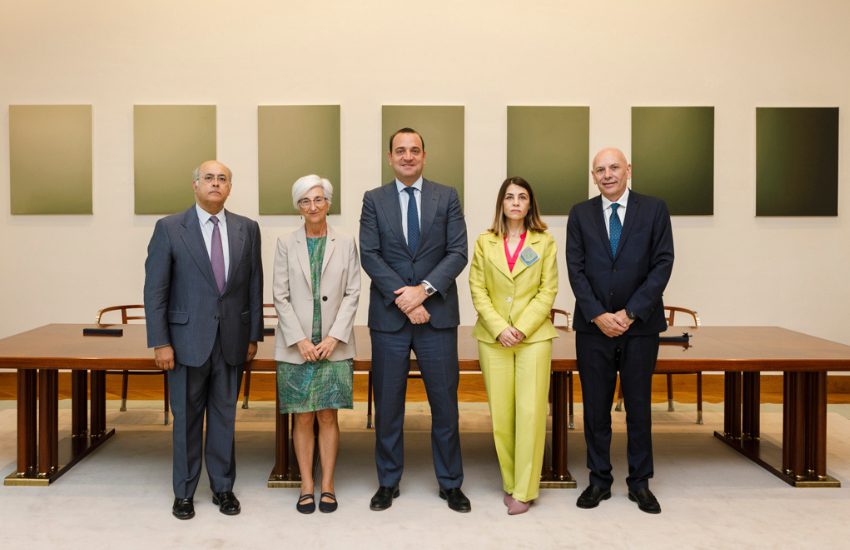The agreement aims to ensure the financial inclusion of people with disabilities and to adapt the practice of banking institutions to the new legislation on the subject
The agreement has been signed by the Spanish Banking Association (AEB), by CECA and by the National Union of Credit Cooperatives (UNACC), representing the sector, and by the Spanish Public Prosecutor's Office, with the involvement of the Bank of Spain as an observer
The Spanish Public Prosecutor's Office, the banking associations (AEB, CECA and UNACC) and the Bank of Spain have signed a cooperation protocol to ensure the autonomy of people with disabilities in relation to banking services and products. The agreement has been signed by the Director General for Financial Conduct and Banknotes of the Bank of Spain, Alberto Ríos; by the Public Prosecutor for Disability and the Elderly, María José Segarra, and by the secretary generals of the three banking associations: Javier Rodríguez, from the Spanish Banking Association; Fernando Conlledo, from CECA, and Cristina Freijanes, representing UNACC.
The agreement establishes the means by which banking practice can adapt to the new legal treatment of disability established by legislation (Spanish Law 8/21), which encourages people with disabilities to make their own decisions, and aims to collaborate in the progressive promotion of the necessary adaptations so that they can operate on their own in the world of banking, including, among other things, information in accessible language.
The agreement also envisages the setting up of a permanent working group to study the role to be played by the new support figures recognised by the disability act and also to analyse the practical issues arising from their implementation, combining them with the legal certainty required by banking activity.
The said regulation eliminated incapacitation and with it legal guardians, removing the judiciary from the lives of people with disabilities and establishing a system for the provision of support, in which the de facto guardian acquires special relevance. This figure constitutes an informal type of support, without legal endorsement, which is usually exercised by the family and whose role in banking transactions has already been channelled in an agreed document, which will be published immediately.
The protocol signed provides for the working group to operate dynamically and address the problems that the adaptation to the law uncovers in day-to-day banking transactions, so that solutions are not only proposed, but also applied swiftly and efficiently for the benefit of the public, with the defence of these rights being one of the missions of the Public Prosecutor's Office.
The signing ceremony took place at the head office of the Bank of Spain. This institution, which has signed the agreement as an observer, will participate as such in the working group, given its role in supervising compliance with the customer protection rules of credit institutions and in promoting the inclusion of vulnerable people in banking services.
Wealth protection protocol
The Public Prosecutor's Office and the banking associations have also signed a second supplementary protocol, the purpose of which is to protect the wealth interests of persons with disabilities or who find themselves in certain situations of vulnerability.
This agreement establishes fluid communication between banks and the competent regional public prosecutor's offices for the reporting of situations that could endanger the economic security of the holder, by revealing situations of abuse or undue influence on their will, and which will activate an investigation by the Public Prosecutor's Office.









